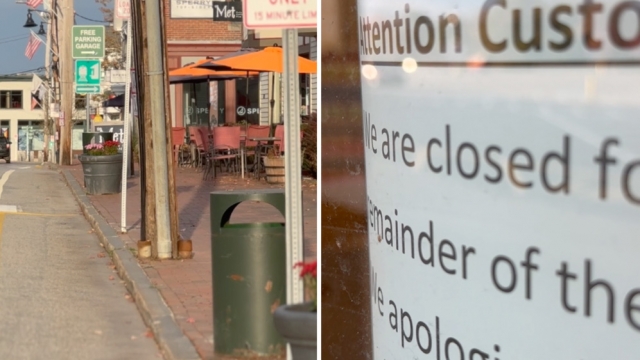In the hours after a tragic night of mass shooting events in Lewiston, Maine, police continued their search for suspect Robert Card. That search, which carried over into the entire next day and night, stretched the resources of a small community thin, and sapped even more energy from an already traumatized and grieving part of the state.
A 40-year-old military reservist with a history of mental health issues was the main suspect, accused of taking nearly as many lives with his firearm in a short window of time on Wednesday night as are lost in an average year in the entire state of Maine, according to homicide records.
The state has one of the country's lowest homicide rates. Eighteen people were killed and 13 others injured at two locations during the rampage.
Tragic events like these deeply hurt not only the communities they directly affect in their proximity, but the entire country. As reporters from outlets in the U.S., Australia and Britain asked Sen. Susan Collins questions during a press briefing on Thursday evening, it was apparent that gun violence in the U.S. is now a very concerning issue for people in other parts of the world as well.
"The children are looking to the adults, and we need ... we are affected by this too, and we need to show our sadness, we need to show our anger. But we want to make sure that these are understandable emotions and that you share them too, but they need to see you remain calm as you deal with them," said Erika Felix.
Felix is a disaster help specialist and Associate Professor at the University of California, Santa Barbara.
She says that while events like these are rare in states with low rates of violence — like Maine — they happen.
SEE MORE: This is what we know about the Maine mass shooting suspect
"I always urge parents to seek out the support of other parents," Felix said. "There are thoughts and fears that you have that you don't want to express to your children."
She says parents need to focus on expressing confidence that they do live in a safe community, if possible. Felix, from California, noted that parts of Maine, according to crime records, are considered safe too, by American standards. That isn't always the case for other areas of the country.
Maine, a state that does not have a great record for mental health services, now has a crisis resource line launched by the governor to try and fill the gap.
The state has experienced serious issues in providing in-person therapy services for children and others.
The governor's crisis resource line and suicide prevention line are staffed around the clock to try and help those in a crisis.
Sen. Collins said she was not aware if there was a report on Card in Maine that should have triggered that state's yellow flag law, to try and prevent him from obtaining and possessing the weapon he used to slaughter residents in his state. Collins told a reporter she didn't have any details on that, and that it was a state issue.
Collins said for 10 years there was a ban on certain types of assault weapons and that she supported extending that ban, which didn't come to fruition.
Collins said Maine has had a long history of responsible gun ownership and noted her support for banning "very high capacity magazines," saying she was also a sponsor for legislation to increase funding for mental health support.
Maine's Democratic Rep. Jared Golden called for Congress to pass a ban on assault rifles, like the one used in the Lewiston shootings.
If you need to talk to someone, call the Suicide and Crisis Lifeline by dialing 988 or text "HOME" to the Crisis Text Line at 741741.
Trending stories at Scrippsnews.com




